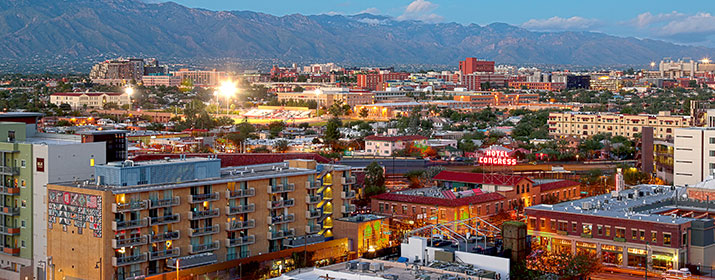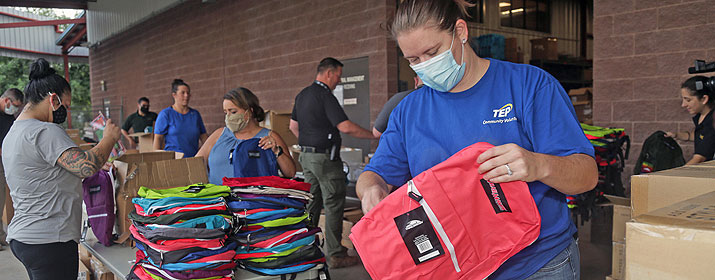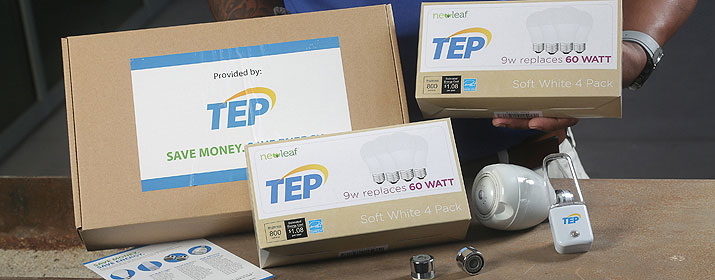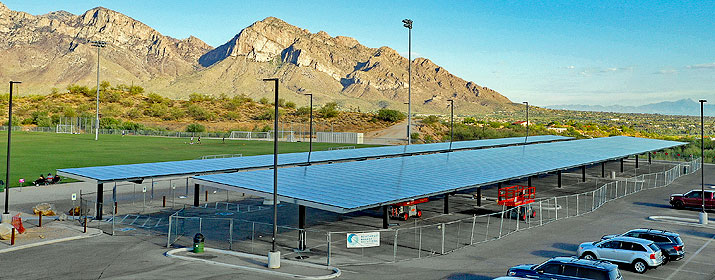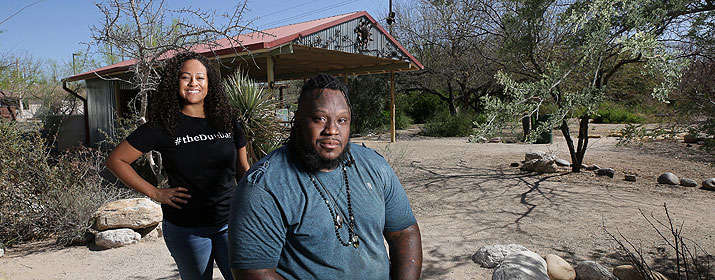
The land around a formerly segregated school will soon be transformed into an interactive garden, meditative space and retail area with support from a TEP grant.
TEP contributed $30,000 to the Dunbar Coalition’s Health and Wellness Project to assist with strategic planning for its garden, including renovations and beautification.
The donation is part of TEP’s support of diversity, equity and inclusion in our region, including through assistance to BIPOC (Black, indigenous and people of color) communities. In addition, TEP focuses its philanthropy efforts each spring on environmental stewardship causes, such as the garden.
“The opportunity to strengthen our ties with the Dunbar neighborhood, while also aligning our internal diversity, equity, and inclusion work with community partners, was key,” said Wendy Erica Werden, TEP’s Manager of Community Investment and Philanthropy. “We want it to grow into a true collaboration and communication where our employees can invest their time and talent in addition to our company’s financial resources.”
The garden will be transformed along Sixth Street north of downtown on the grounds of the Paul Lawrence Dunbar School, which opened in 1912 as a segregated school for Black children. After the Tucson School District ended its segregation system in 1951, the school was rechristened John Spring Junior High School and remained open until 1978. The buildings were sold to the Dunbar Coalition in 1995 for use as a community center.
Dunbar Pavilion now serves as an African American Arts and Culture Center. The garden, as well as cultural and wellness programs supported by the TEP grant and other donations, were kickstarted in 2019 by a $100,000 donation from the Agnese Haury Program of Environment and Social Justice at the University of Arizona. Dunbar’s program includes two sessions or events each month, recently held virtually, to educate the public on wellness and cultural issues.
“The aim of our programming is BIPOC-centered, designed to create a center for Black health and wellness and holistic programs rooted in indigenous ways and healing,” said Desiree Gonzales, Dunbar’s Program Manager.
Organizers have used the downtime during the pandemic to refocus the garden, which previously included individual plots for residents to grow their own plants and food.
Dunbar selected Drew Berryhill, the owner of Drutopia nursery, to oversee the visual landscape changes and manage the garden. He will run his pop-up shop nursery in the parking lot as part of the arrangement.
Dunbar plans to add new fencing, beautify the grounds and improve the basketball court and playground space for public use. As pandemic restrictions are lifted, Dunbar hopes to hold exercise, meditation or yoga classes among the greenery.
“We’re supporting business, while also strengthening our community and drawing people in,” Gonzales said.
Debi Chess, Executive Director of the Dunbar Pavilion, said TEP’s donation is allowing the program to grow, along with helping connect with community partners.
“The monetary contribution is wonderful, but it’s the relationship building that is key,” Chess said. “TEP’s reach extends into different communities and their support in helping us bridge those relationships is really wonderful.”
This story is part of our ongoing series highlighting TEP’s philanthropic focus areas. TEP works with nonprofit partners to develop invitation-based donation requests for community assistance efforts. Funds come from corporate resources, not customers’ rates. Learn more about donations.


